- Introduction
- Geographical Information
- Cultural Insights
- Must-Visit Historical Places
- Multan Fort
- Shrine of Bahauddin Zakariya
- Shrine of Shah Rukn-e-Alam
- Tomb of Shah Shams Sabzwari
- Haram Gate
- Ghanta Ghar
- Tomb of Sultan Ali Akbar
- Sawi Mosque
- Multan Museum
- Qasim Bagh
- Activities and Experiences
- Travel Tips
- Accommodation Options
- Transport within the City
- Packing Tips
- Safety and Health Precautions
- Budget Planning
- Cost of Visiting Major Attractions
- Budget-Friendly Travel Tips
- Suggested Itineraries
- Must-Try Dishes
Introduction
Multan, often referred to as the City of Saints, is one of the oldest cities in the world with a rich tapestry of history and culture. Located in the heart of Pakistan, this city has been a significant center for trade, culture, and religion for centuries. 10 historical Multan’s Places landmarks are a testament to its diverse cultural heritage and architectural brilliance, making it a must-visit destination for history enthusiasts and travelers alike. so when u visit Multan you must visit 10 multan historical places.
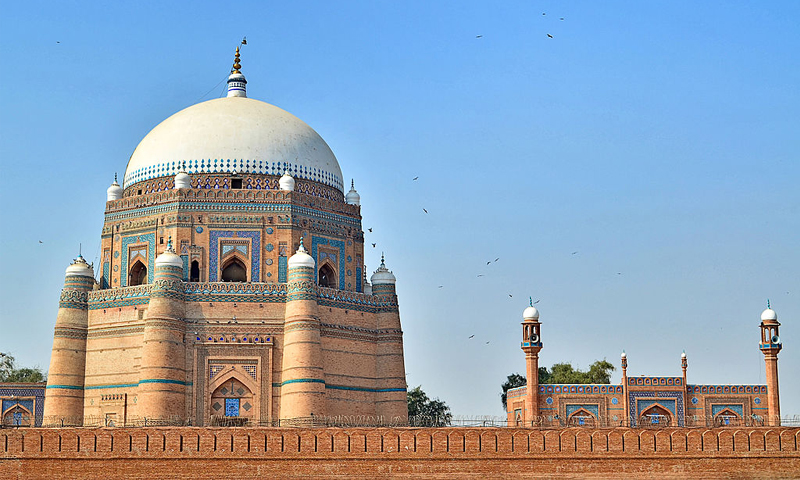
Geographical Information
Location of Multan
Multan is situated in the Punjab province of Pakistan, lying on the banks of the Chenab River. Its strategic location has historically placed in multan making it a hub for trade and commerce.
Climate and Weather
The city experiences a hot desert climate with extremely hot summers and mild winters. The best time to visit Multan is during the cooler months from October to March.
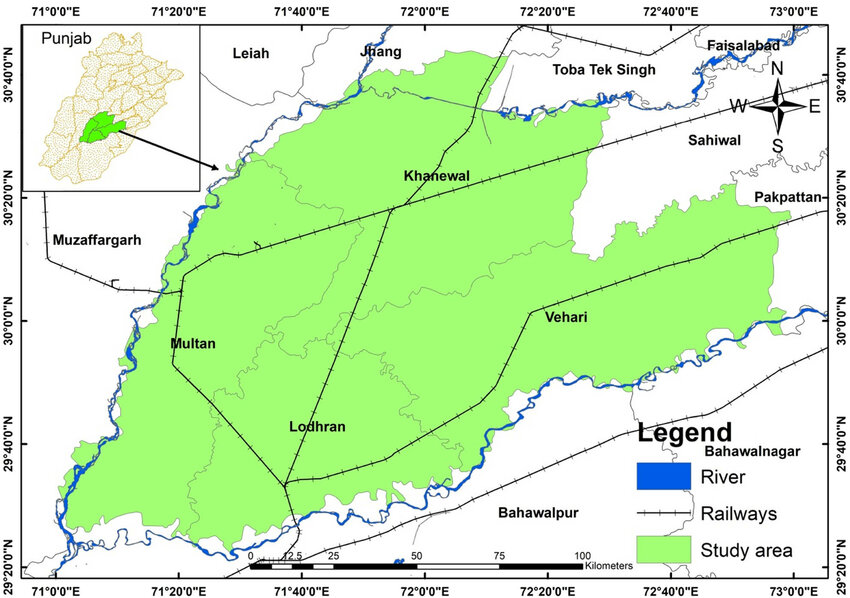
Cultural Insights
Local Customs and Traditions
Multan’s culture is a blend of various traditions and customs. The city is known for its hospitality, vibrant festivals, and traditional music and dance. Multan Historical Places to Visit for entertaining.
Languages Spoken
The primary language spoken in Multan is Saraiki, along with Punjabi and Urdu. English is also understood by many, especially in business and tourist areas.
Religious Influences
Multan is renowned for its religious significance, particularly in Islam. It is home to numerous shrines and mosques, attracting thousands of pilgrims annually.
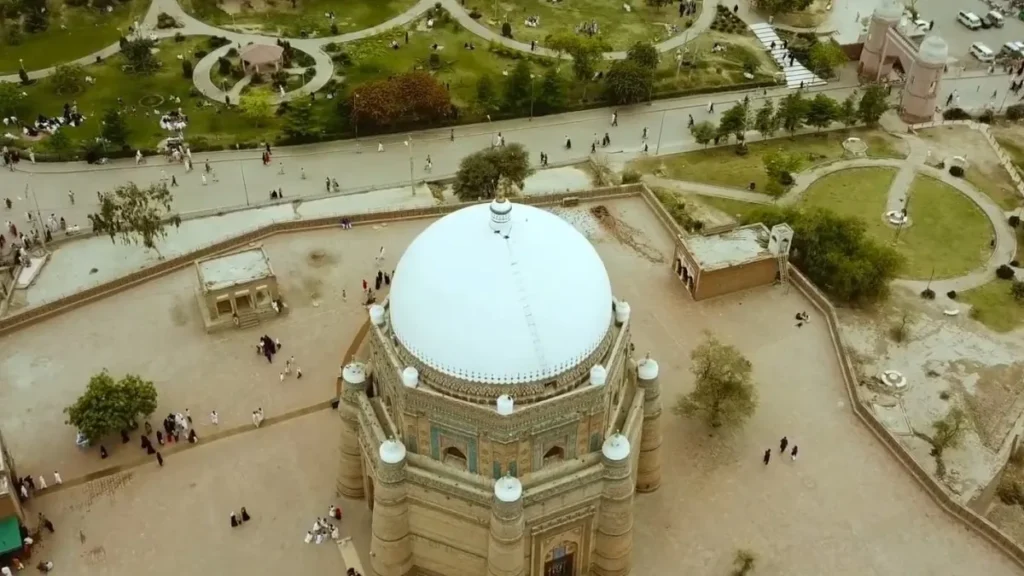
Must-Visit Historical Places
Multan Fort
History: Multan Fort, also known as Qila Kohna Qasim Bagh, dates back to ancient times and has been a pivotal defensive structure in the region.
Architectural Features: The fort is known for its high walls, bastions, and gateways, showcasing a blend of Islamic and Mughal architecture.
Importance in Defense: Historically, the fort served as a formidable defense against invasions, making it a significant military stronghold. One of the Multan historical places.
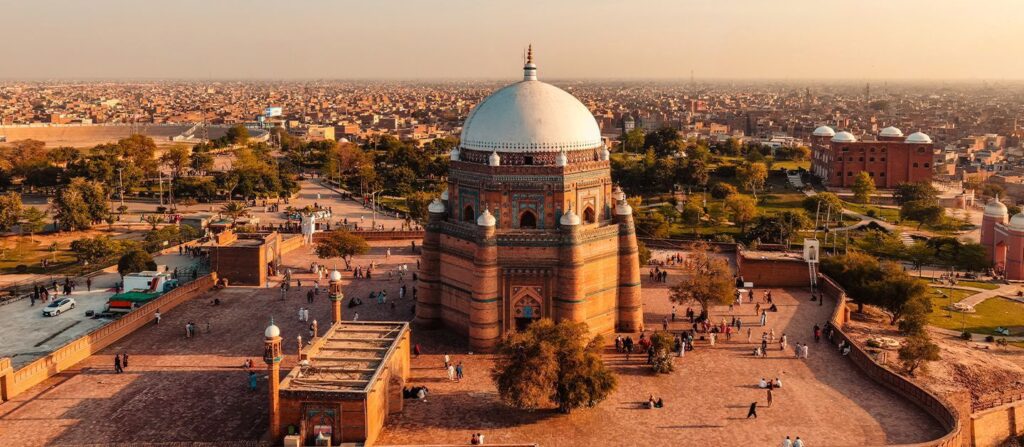
Shrine of Bahauddin Zakariya
Historical Background: Built in the 13th century, this shrine is dedicated to the Sufi saint Bahauddin Zakariya, a key figure in the spread of Islam in the region.
Architectural Style: The shrine features a unique blend of Persian and Islamic architectural styles, with intricate tile work and calligraphy.
Religious Significance: It is a major pilgrimage site, reflecting the deep spiritual heritage of Multan Historical Place.
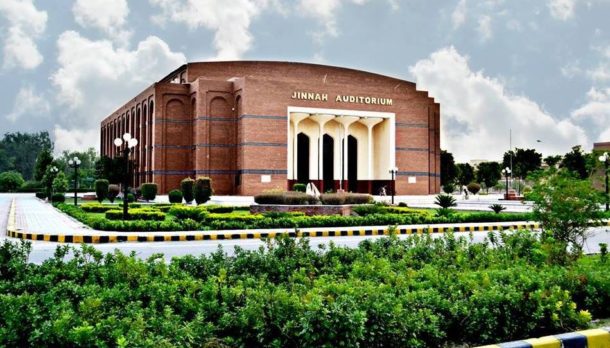
Shrine of Shah Rukn-e-Alam
History: This shrine, constructed in the 14th century, is the resting place of the Sufi saint Shah Rukn-e-Alam.
Unique Features: The shrine is renowned for its massive dome, vibrant tilework, and elegant architecture.
Cultural Impact: It plays a crucial role in the religious and cultural identity of Multan.
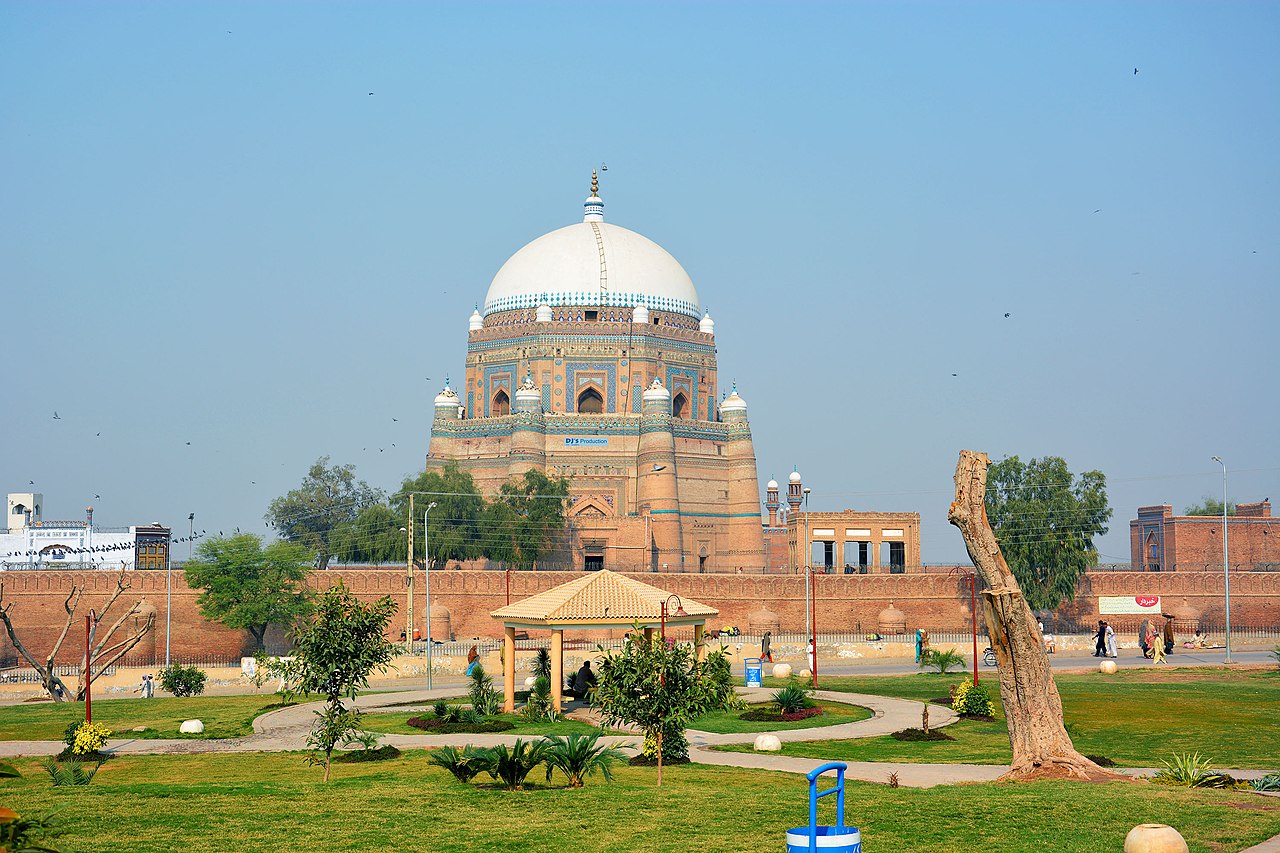
Tomb of Shah Shams Sabzwari
Historical Context: Shah Shams Sabzwari was a prominent Sufi saint whose tomb, built in the 14th century, is a significant religious site.
Design and Architecture: The tomb’s architecture is characterized by its intricate frescoes and beautiful tile work.
Religious Importance: The site attracts numerous devotees and tourists, reflecting its enduring spiritual significance.
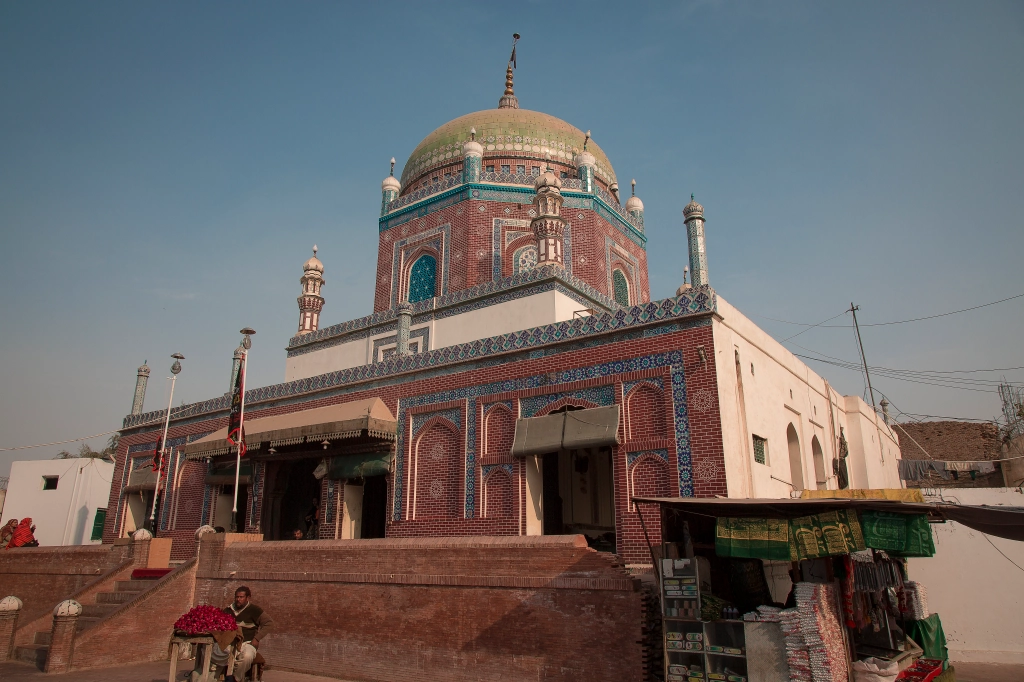
Haram Gate
Historical Background: Haram Gate is one of the ancient gates of one of Multan historical places, dating back to the medieval period.
Architectural Details: The gate features traditional Mughal architecture, with impressive arches and carvings.
Role in Trade and Defense: Historically, it served as a crucial entry point to the city, facilitating trade and defense.
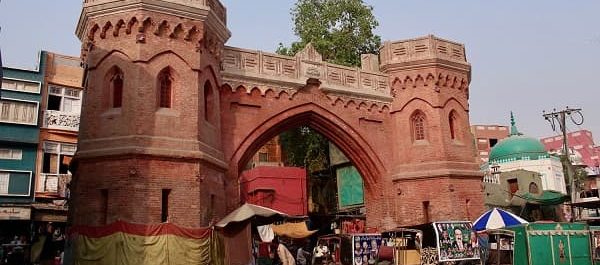
Ghanta Ghar
History and Construction: Also known as the Clock Tower, Ghanta Ghar was built during the British colonial period and stands as a prominent landmark.
Importance as a Landmark: It is a central point in Multan, symbolizing the city’s colonial heritage and modern development.
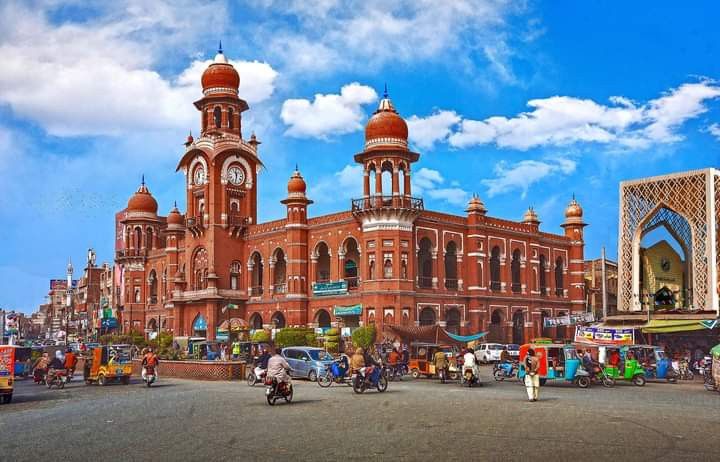
Tomb of Sultan Ali Akbar
Historical Significance: This tomb commemorates Sultan Ali Akbar, a notable historical figure in Multan’s history.
Architectural Elements: The tomb is noted for its splendid architecture, featuring detailed carvings and elegant design.
Cultural Relevance: It is an important cultural and historical site, reflecting the rich heritage of Multan.
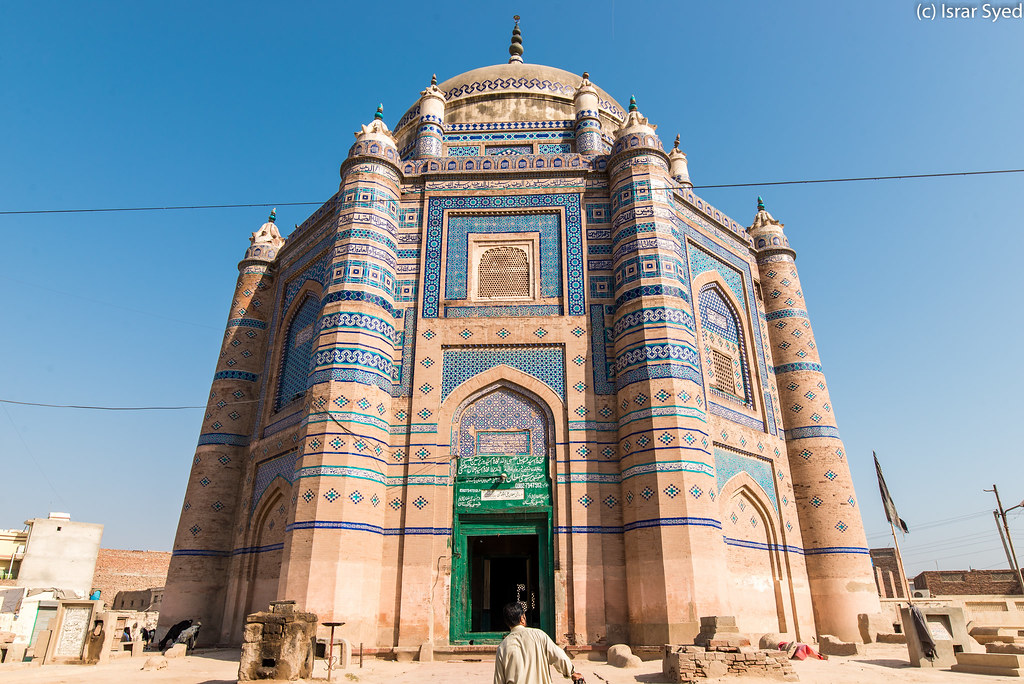
Sawi Mosque
Historical Background: Sawi Mosque is one of the oldest mosques in Multan, dating back to the early Islamic period.
Unique Features: The mosque is known for its simple yet elegant architectural style, with a distinctive blue tile facade.
Religious and Cultural Role: It serves as a place of worship and a symbol of Multan’s Islamic heritage.
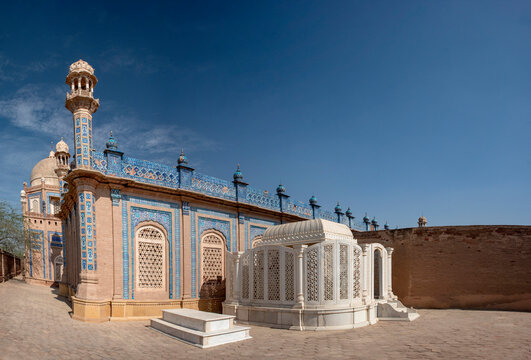
Multan Museum
History of the Museum: The Multan Museum houses a vast collection of artifacts showcasing the rich history and culture of the region.
Collections and Exhibits: The museum features archaeological finds, historical documents, and artworks from various periods.
Educational Importance: It serves as an educational resource, offering insights into the historical and cultural evolution of Multan.
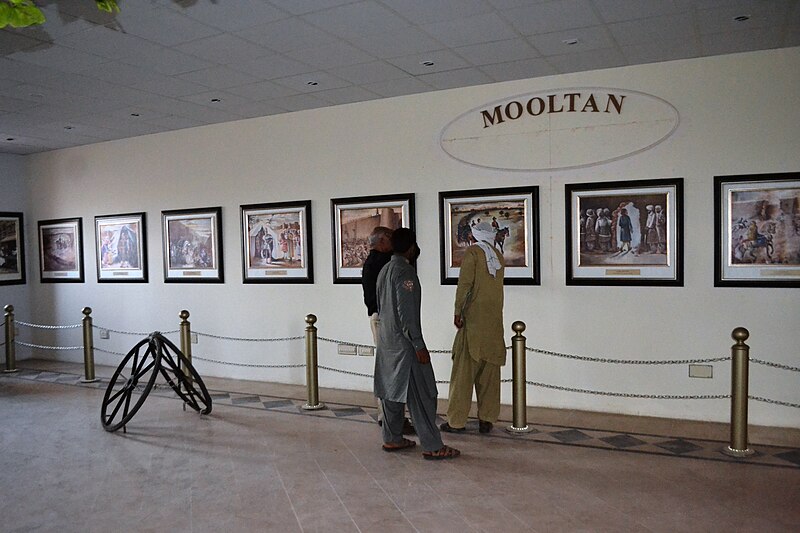
Qasim Bagh
Historical Significance: Qasim Bagh is a historic park located within the Multan Fort complex.
Features and Attractions: The park offers beautiful gardens, ancient ruins, and a panoramic view of the city.
Role in Local Culture: It is a popular recreational spot, reflecting the blend of natural beauty and historical heritage in Multan.
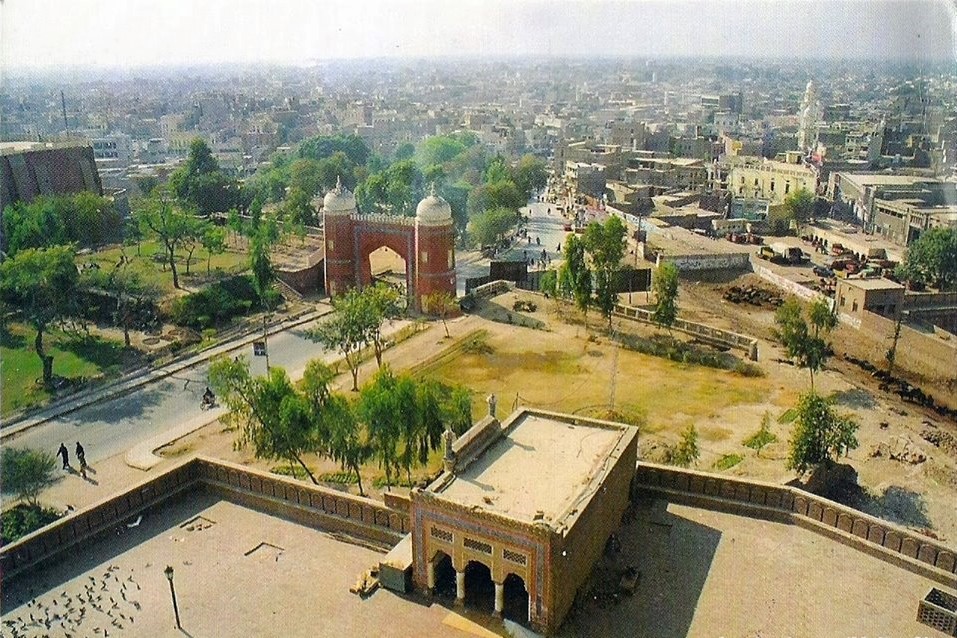
Activities and Experiences
Visitors to Multan can enjoy guided tours of the historical sites, participate in cultural festivals, and explore local handicrafts and markets. The city’s rich history and vibrant culture offer a plethora of experiences for travelers.
Travel Tips
Accommodation Options
For those looking for accommodation, there are various options ranging from luxury hotels like the Ramada by Wyndham to more budget-friendly hotels in Multan. Online booking services make it easy to find and reserve the best places to stay, ensuring a comfortable visit.
Transport within the City
Getting around Multan is convenient with various transport options, including taxis, rickshaws, and rental cars. Public transport and guided tours are also available for major attractions.
Packing Tips
Visitors should pack light, comfortable clothing suitable for the hot climate, along with sunscreen, hats, and sunglasses. It’s also advisable to carry a water bottle to stay hydrated during city tours.
Safety and Health Precautions
General Safety Tips
Multan is generally safe for tourists, but it’s important to stay vigilant, especially in crowded areas. Always keep your belongings secure and avoid venturing into unfamiliar areas alone at night.
Health Advisories
Travelers should ensure they have the necessary vaccinations and carry any required medications. It’s advisable to drink bottled water and be cautious with street food to avoid stomach issues.
Emergency Contacts
Familiarize yourself with local emergency numbers, including those for police, medical services, and your country’s embassy or consulate in Pakistan.
Budget Planning
Cost of Visiting Major Attractions
Entry fees for major attractions in Multan are generally affordable, making it a budget-friendly destination. However, guided tours and additional activities may incur extra costs.
Budget-Friendly Travel Tips
Opt for local eateries and street food to save on dining costs. Public transport and shared taxis are economical options for getting around the city.
Suggested Itineraries
A three-day itinerary could include visits to major shrines, Multan Fort, and the museum, while a week-long stay allows for a more in-depth exploration of historical sites and cultural experiences.
Local Cuisine:

Must-Try Dishes
Multan’s cuisine is delightful. Must try it when visiting Multan.
